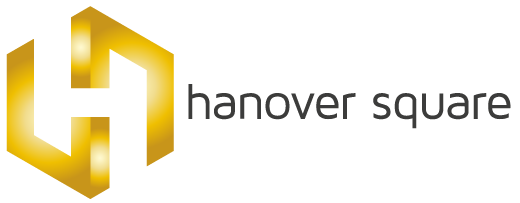UK Housing Boom Leads to £2,500 jump in asking prices
UK’s Housing Boom leads to a jump in the average asking price of £2,500. Asking prices jumping by more than £2,500 over the past month alone according to Rightmove. Therefore indicative that Britain’s property market is entering a new cycle of growth.
The average asking price for a home rose to £309,399 in February, £40 shy of its all-time record, said Rightmove. Buyers and sellers have been invigorated by renewed economic confidence, described as the “Boris bounce”, it added.
Rightmove received a record number of visits in January; 152m furthermore, agreed sales surged by 12% compared with the same month last year.
The market is now in its most exuberant market report since the last boom in 2014-15. Rightmove predicted price records would be broken in the spring and hesitant buyers should “now jump in”.
Halifax, January shows Prices are 4.1% higher than Jan 2019.
U.K. property prices are continuing to climb amid the so-called “Boris Bounce,” according to a report Friday from Halifax.
Prices in January were 4.1% higher than they were at the same time in 2019. Therefore the highest level of annual growth since October 2017, and the second consecutive month of price growth of at least 4%, according to the bank and mortgage provider.
Nationwide said that in January Britain’s house price inflation rate rose by 1.9% over the month.
Supply and Demand Imbalance Supports Housing Boom
Some analysts say it may be too early to suggest that the UK Housing Boom will continue. However, the supply and demand imbalance allows for support on pricing.
Rightmove director, Miles Shipside, said: “There is a boom in buyer activity outstripping the rise in the number of new sellers, which we expect to lead to a series of new price records starting next month. Buyers who had been hesitating and waiting for the greater political certainty following the election outcome may be paying a higher price but they can now jump into the spring market with renewed confidence.”
Others said the “Boris bounce” could flag after the budget and if wrangling over EU trade negotiations saps confidence in the economy.
Edward Heaton, a buying agent who acts for investors at the top end of the UK market, said: “I would expect any house price rises we’ve seen in January to flatten by the latter part of the year, as attention will inevitably turn to ‘deal or no deal’. Trade negotiations will unavoidably affect market confidence – both in attracting foreign investors and housebuilders who rely on European materials.”
The first location to see a slowdown was the Capital in 2016. But some boroughs are seeing a return to strong price growth. Rightmove said prices in Camden jumped by 5.7% over the month, adding £50,000 to the average £1,023,489 price tag in the London borough, returning them to where they were a year ago.



UK Housing Boom Leads to £2,500 jump in asking prices
UK’s Housing Boom leads to a jump in the average asking price of £2,500. Asking prices jumping by more than £2,500 over the past month alone according to Rightmove. Therefore indicative that Britain’s property market is entering a new cycle of growth.
The average asking price for a home rose to £309,399 in February, £40 shy of its all-time record, said Rightmove. Buyers and sellers have been invigorated by renewed economic confidence, described as the “Boris bounce”, it added.
Rightmove received a record number of visits in January; 152m furthermore, agreed sales surged by 12% compared with the same month last year.
The market is now in its most exuberant market report since the last boom in 2014-15. Rightmove predicted price records would be broken in the spring and hesitant buyers should “now jump in”.
Halifax, January shows Prices are 4.1% higher than Jan 2019.
U.K. property prices are continuing to climb amid the so-called “Boris Bounce,” according to a report Friday from Halifax.
Prices in January were 4.1% higher than they were at the same time in 2019. Therefore the highest level of annual growth since October 2017, and the second consecutive month of price growth of at least 4%, according to the bank and mortgage provider.
Nationwide said that in January Britain’s house price inflation rate rose by 1.9% over the month.
Supply and Demand Imbalance Supports Housing Boom
Some analysts say it may be too early to suggest that the UK Housing Boom will continue. However, the supply and demand imbalance allows for support on pricing.
Rightmove director, Miles Shipside, said: “There is a boom in buyer activity outstripping the rise in the number of new sellers, which we expect to lead to a series of new price records starting next month. Buyers who had been hesitating and waiting for the greater political certainty following the election outcome may be paying a higher price but they can now jump into the spring market with renewed confidence.”
Others said the “Boris bounce” could flag after the budget and if wrangling over EU trade negotiations saps confidence in the economy.
Edward Heaton, a buying agent who acts for investors at the top end of the UK market, said: “I would expect any house price rises we’ve seen in January to flatten by the latter part of the year, as attention will inevitably turn to ‘deal or no deal’. Trade negotiations will unavoidably affect market confidence – both in attracting foreign investors and housebuilders who rely on European materials.”
The first location to see a slowdown was the Capital in 2016. But some boroughs are seeing a return to strong price growth. Rightmove said prices in Camden jumped by 5.7% over the month, adding £50,000 to the average £1,023,489 price tag in the London borough, returning them to where they were a year ago.
Click Here to View Current Opportunities
Share This Story, Choose Your Platform!
Related Posts
House Price Growth Reaches 5 Year High
Stamp Duty Holiday Creates Surge From Overseas Investors
Stamp Duty Holiday
2020 UK Property Market Forecast
Is UK Property Still A Foundation For A Balanced Portfolio?